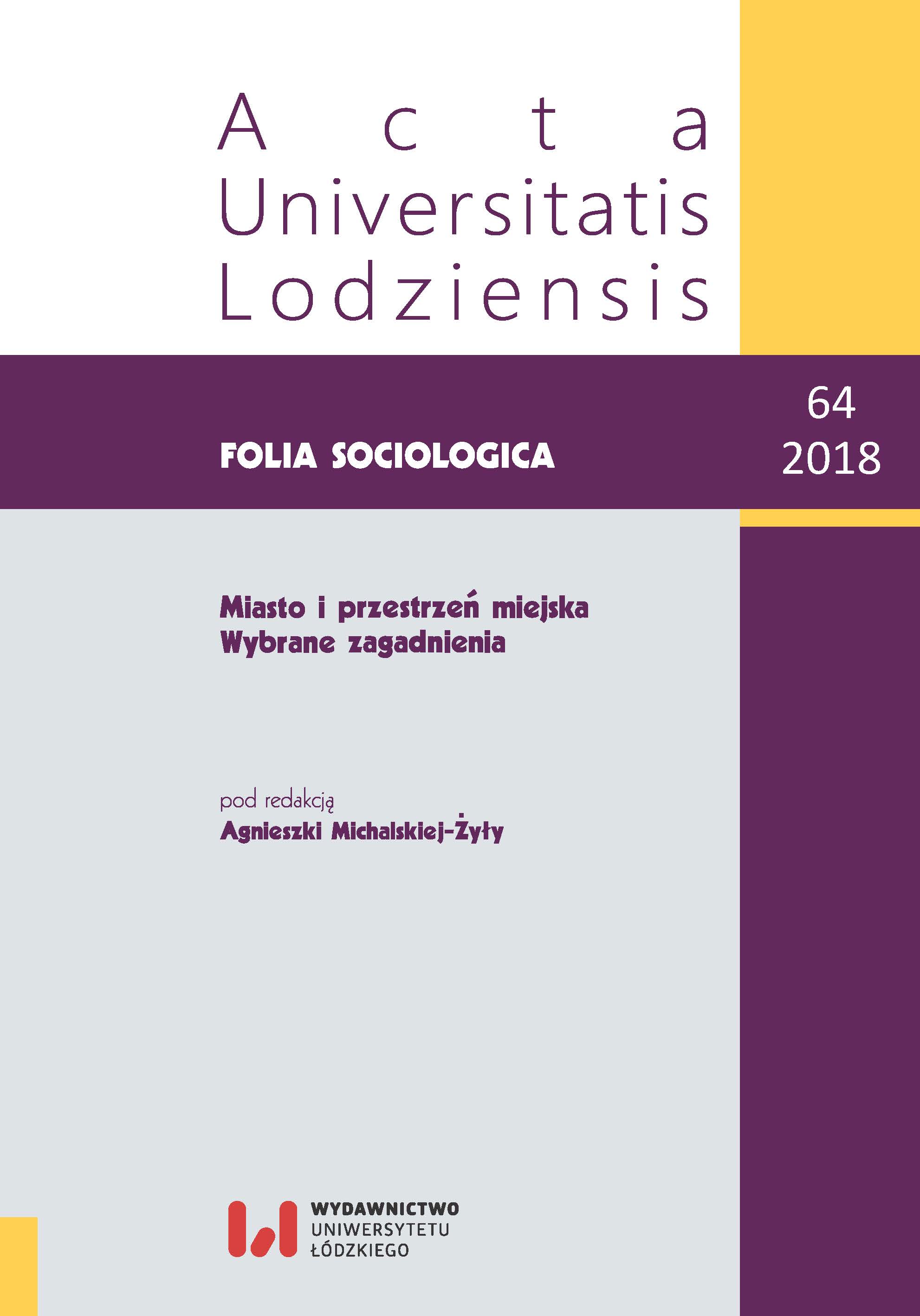Who implements participatory budgeting and who do not? Comparison of municipalities in Wielkopolska province in terms of wealth and level of social activism
DOI:
https://doi.org/10.18778/0208-600X.64.08Keywords:
participatory budgeting, participation, local government, social activism, the Wielkopolska provinceAbstract
Participatory budgeting is a citizens’ participation in local governance. The core aspect of participation is the dialogue between local authorities and citizens concerning the redistribution of public resources, although redistribution or allocation is just one of the functions, that local government budgets provide. Participatory budgeting has been implemented in Poland last years. They are usually analyzed as case studies. In the presented analysis other approach is taken. The focus was not so much on the implementation itself, but on the comparison of local governments in the Wielkopolska region, which implemented against those which did not. The questions of the study concerned: (1) whether there was a significant difference in the wealth of the municipalities, and (2) whether there was a significant difference in the level of social activity, between municipalities that implemented participatory budgeting and those which did not. The results of the analyzes revealed no statistically significant difference between the two categories of municipalities in terms of the wealth of the municipalities. However, the significant difference was identified, between the municipalities in terms of the level of social activity. The municipalities implementing participatory budgets are characterized by higher level of social activity. Thus, participatory budgeting in the Wielkopolska province, can therefore be regarded as a mean of supporting activity in those municipalities where citizens are already active.
References
Bartkowski J. (2003). Tradycja i polityka: Wpływ tradycji kulturowych polskich regionów na współczesne zachowania społeczne i polityczne. Wydawnictwo Żak, Poznań.
Google Scholar
Bassoli M. (2012). Participatory budgeting in Italy: Analysis of (almost democratic) participatory governance arrangements, “International Journal of Urban and Regional Research”, no. 36 (6), s. 1183–1203.
Google Scholar
Burchard-Dziubińska M. (2014). Budżet obywatelski jako partycypacyjna forma współrządzenia, „Zeszyty Naukowe Uniwersytetu Szczecińskiego. Studia i Prace Wydziału Nauk Ekonomicznych i Zarządzania”, nr 37 (2), s. 197–208.
Google Scholar
Cichocki P. (2012). Jaka jest tożsamość wielkopolska?, „Przegląd Zachodni”, nr 1, s. 87–100.
Google Scholar
Czarnecki K. (2014). Udział mieszkańców w ustalaniu wydatków budżetu gminy w ramach tzw. budżetu partycypacyjnego (na przykładzie Torunia w latach 2013–2014), „Prawo Budżetowe Państwa i Samorządu”, nr 1 (2), s. 125–145, DOI: http://dx.doi.org/10.12775/PBPS.2014.008
Google Scholar
DOI: https://doi.org/10.12775/PBPS.2014.008
Im T., Lee H., Cho W., Campbell J. W. (2014). Citizen Preference and Resource Allocation: The Case for Participatory Budgeting in Seoul, “Local Government Studies”, no. 40 (1), s. 102–120.
Google Scholar
Ganuza E., Baiocchi G. (2012). The power of ambiguity: How participatory budgeting travels the globe, “Journal of Public Deliberation”, no. 8 (2), s. 1–12.
Google Scholar
Hirschman A. (1995). Lojalność, krytyka, rozstanie: Reakcje na kryzys państwa, organizacji i przedsiębiorstwa, Znak, Kraków–Warszawa.
Google Scholar
Holdo M. (2016). Deliberative capital: Recognition in participatory budgeting, “Critical Policy Studies”, no. 10 (4), s. 391–409.
Google Scholar
Jeran A. (2016). Czy wielkopolska mentalność nadal istnieje? Analiza oparta na danych Diagnozy Społecznej 2015, „Przegląd Zachodni”, nr 2, s. 103–129.
Google Scholar
Kajdanek K. (2015). Budżet obywatelski czy „budżet obywatelski”? Komentarz w sprawie Wrocławskiego Budżetu Obywatelskiego, „Problemy Rozwoju Miast – Kwartalnik Naukowy Instytutu Rozwoju Miast”, nr XII (II), s. 29–35.
Google Scholar
Lisiecki S. (2015). Florian Znaniecki i Janusz Ziółkowski. O tradycji i kontynuacjach badań nad wartościowaniem przestrzeni miasta, „Ruch Prawniczy, Ekonomiczny i Socjologiczny”, nr 77 (1), s. 13–26.
Google Scholar
Łukasiewicz D. (2014). Mentalność pruska, mieszczańska, protestancka czy kapitalistyczna? Prusy 1806–1871, „Przegląd Zachodni”, nr 2, s. 91–119.
Google Scholar
Łukomska-Szarek J. (2014). Budżetowanie partycypacyjne jako instrument współzarządzania sferą publiczną, „Nierówności Społeczne a Wzrost Gospodarczy”, nr 4, s. 137–144.
Google Scholar
Martela B. (2013). Budżet partycypacyjny w Polsce – wdrożenie i perspektywy, „Władza Sądzenia”, nr 2, s. 22–33.
Google Scholar
Matczak P., Sadło M., Mączka K. (2015). Budżety obywatelskie w województwie wielkopolskim: Stan obecny i perspektywy na przyszłość, „Biuletyn Wielkopolskiego Regionalnego Obserwatorium Terytorialnego”, nr III, s. 26–31.
Google Scholar
Miazga A., Teisseyre P. (2016). Społeczna gmina. Ranking aktywności społecznej w samorządach, www.wspolnota.org [dostęp 10.11.2017].
Google Scholar
Molik W. (oprac.) (2005). Etos Wielkopolan. Antologia tekstów o społeczeństwie Wielkopolski z drugiej połowy XIX i XX wieku. Wydawnictwo Poznańskiego Towarzystwa Przyjaciół Nauk, Poznań.
Google Scholar
Molik W. (2016). Dziedzictwo kulturowe Wielkopolski, „Przegląd Zachodni”, nr 2, s. 7–22.
Google Scholar
Radziszewski M. (2016). Budżet obywatelski instrumentem rozwoju kapitału społecznego, „Athenaeum. Polskie Studia Politologiczne”, nr 51, s. 131–154. DOI: 10.15804/athena.2016.51.08
Google Scholar
DOI: https://doi.org/10.15804/athena.2016.51.08
Sintomer Y., Herzberg C., Röcke A. (2008). Participatory budgeting in Europe: Potentials and challenges, “International Journal of Urban and Regional Research”, no. 32 (1), s. 164–178.
Google Scholar
Sorychta-Wojsczyk B. (2015). Uwarunkowania wykorzystania budżetu obywatelskiego w administracji publicznej w Polsce, „Zeszyty Naukowe Politechniki Śląskiej. Organizacja i Zarządzanie”, nr 78 (1928), s. 421–430.
Google Scholar
Wampler B. (2007). A guide to participatory budgeting, [w:] A. Shah (ed.), Participatory budgeting. The World Bank, Washington, s. 21–54.
Google Scholar
Downloads
Published
How to Cite
Issue
Section
License

This work is licensed under a Creative Commons Attribution-NonCommercial-NoDerivatives 4.0 International License.










